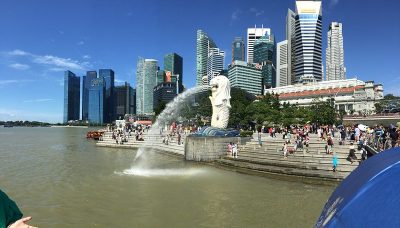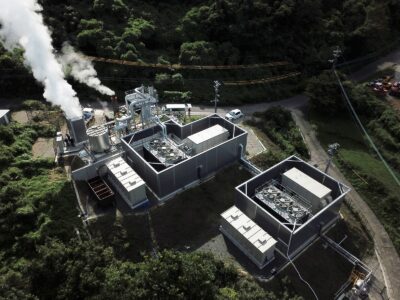Small-scale projects seen as key to further geothermal growth in the Philippines
The Philippines' Department of Energy sees small-scale geothermal projects as an opportunity to keep the Philippines to regain its status in the global geothermal rankings.
As announced in conjunction with the Philippines International Geothermal Conference this week in Manila, the Philippine government is pushing for the development of small-scale geothermal projects to reclaim the country’s spot as the second largest producer of geothermal energy.
However, developers are asking fiscal and non-fiscal incentives from government as low to medium enthalpy geothermal projects are high risk and require large capital.
The Department of Energy (DOE) is urging the industry for further growth, assistant secretary Robert Uy said during the conference this week. There has been no significant geothermal development since the introduction of the Renewable Energy Act of 2008 and Indonesia has surpassed the Philippines in the rankings of the top geothermal countries. Clearly there is a national pride element here.
“We all know that most of the attractive geothermal areas are already developed and aside from the Nasulo geothermal power plant and Maibarara geothermal project, there were no significant developments realized since the enactment of the RE Law,” Uy said.
With this, the agency is pushing for the development of medium to low enthalpy geothermal resources in the country, as we reported earlier today.
The development of non-conventional geothermal resources, despite the low capacity generated, is more economical to develop due to their proximity to transmission lines and communities, unlike conventional geothermal projects that are expensive, up in the mountains and difficult in securing permitting requirements, NGAP president Joeffrey Caranto said on the sidelines of the conference.
However, the group cited hurdles in the development of these projects, such as cost, access to transmission lines, lack of incentives, tedious permitting process, and security issues. The lack of power purchase agreements also poses a challenge for geothermal developers to push through with their projects.
To address the industry’s concerns, NGAP is working with the DOE to implement measures to support geothermal development.
“What we’re doing is we’re advocating with the DOE to come up with some sort of regulations or incentives that will also help the industry,” Caranto said.
Source: PhilStar


















